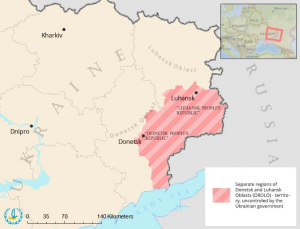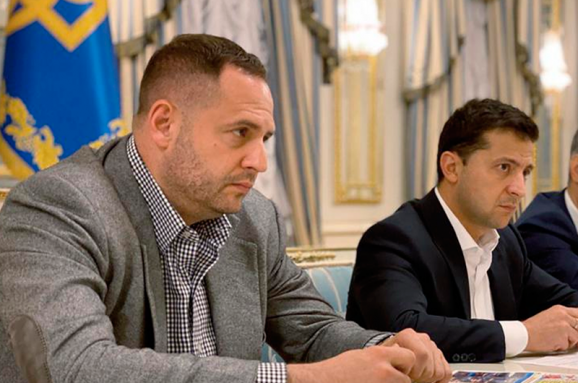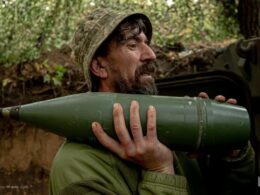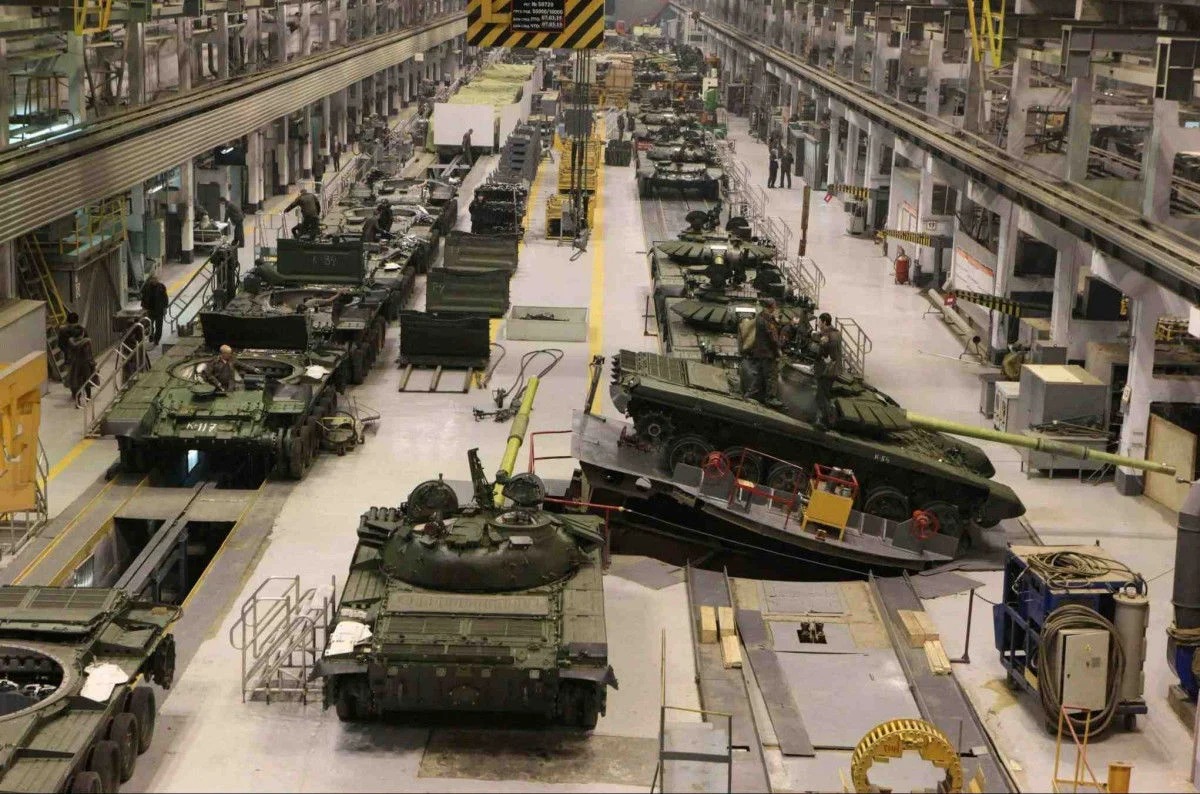Ceasefire deal

While the agreement’s full text has been released by all signatory parties, the page reserved for the signatures has only been revealed by the Luhansk [occupation] authorities (Lug-info.com, July 22). The scanned page shows the names of the Russian and Ukrainian plenipotentiaries, Boris Gryzlov and Leonid Kuchma; the Donetsk and Luhansk “plenipotentiaries,” Natalya Nikonorova and Vladislav Deynego (self-styled “foreign affairs ministers”); and the Organization for Security and Cooperation in Europe (OSCE) chairmanship’s representative, Heidi Grau.

The full cast of signatory parties is known in expert circles, but the Ukrainian presidential office has kept silent over it for fear of political embarrassments, such as it experienced with the signing of the Steinmeier Formula and the Kyiv-Donetsk/Luhansk “consultative council” (October 2019 and March 2020, respectively).
While the signing of the Steinmeier Formula raised the signatures of Donetsk-Luhansk for the first time to equivalence with Ukraine’s signature on a negotiated document (moreover, an internationally accepted one), Moscow‘s “consultative council” project would have positioned Kyiv and Donetsk-Luhansk as parties to direct negotiations and Russia as a moderator.
This would be a ceasefire agreement, covered by a political agreement, between Kyiv and Donetsk-Luhansk as equal parties to the ceasefire (and, hence, to an inner-Ukrainian conflict) while casting Russia as an uninvolved bystander.

Kozak’s counterpart in the aborted “consultative council” project, Yermak, played along in this latest case also (as he had with Kozak’s predecessor, Vladislav Surkov, on the Steinmeier Formula), and from similar considerations. These include:
- meeting the pre-conditions for Zelenskyy to mount the stage of “Normandy“ summits with the Russian, German and French leaders;
- delivering on Zelenskyy’s pledges to bring “peace” (“stop the shooting”) in short order; inducing the Kremlin to relent on prisoner exchanges;
- and, this time around, shoring up the presidential Servant of the People party in the country-wide local elections in October.
Such short-term considerations seriously undermine Zelenskyy’s longer-term, declared (and probably genuine) objective to regain the Russian-controlled territories for Ukraine.
The Kremlin exploits all those pressure points to extract concessions from Ukraine’s Presidential Office, the most concession-prone among Kyiv’s institutions involved in these negotiations. The Kremlin is far more uncomfortable with Ukraine’s foreign ministry or with Deputy Prime Minister Oleksiy Reznikov than with Zelenskyy, let alone Yermak. This is not to say that Zelenskyy and Yermak are yielding willingly or readily. The open-source record shows that the Kremlin does need to apply some pressure in the negotiations.
“Normandy Four”
Meeting on July 3–4, in Berlin, the diplomatic advisors to the “Normandy” heads of state and government agreed on recommending to the Minsk Contact Group to discuss additional ceasefire-strengthening measures in the near future. However, the French and German negotiators disagreed with Kozak’s draft document on a ceasefire agreement and countered with their own. The drafts remained to be reconciled at some later time (but were not).
Apart from this issue, Kozak virulently attacked the political positions of the Ukrainian delegation in the Minsk Contact Group’s political working group, with Reznikov as his main target. Dismissing Zelenskyy’s wish for a summit as something “far, far too early to discuss,” Kozak unilaterally declared a “pause” in the Normandy negotiation process, pending “clarifications to Ukraine’s positions” (TASS, July 3–4; Ukrinform, July 4, 6; see EDM, July 9).
This turned out to be the harbinger of Kozak’s July 27 termination notice to this forum and his move to shift the action on the new ceasefire from the Normandy forum to the Minsk Contact Group, where Russia is stronger and Ukraine weaker.
Minsk group
On July 8, in the Minsk Contact Group’s video-session, Moscow’s and Donetsk-Luhansk’s delegations called for an agreement on ceasefire measures to be negotiated and signed directly between Kyiv and Donetsk-Luhansk, within the security working group, by a July 22 deadline, based on Kozak’s draft. The OSCE’s moderator, Grau (see above), turned this proposal down, pending the receipt of commonly agreed guidelines from the Normandy Four diplomatic advisers. (TASS, July 8; Ukraiynska Pravda, July 10; Donetskoye Agentstvo Novostey, July 14).
In the political working group, the Ukrainians duly presented the draft law to incorporate the Steinmeier Formula into Donetsk-Luhansk’s “special status” (as per the October 2019 Zelenskyy-Yermak cave-in to Moscow). But the Ukrainians prevaricated on other political and constitutional issues that Moscow wants Kyiv to discuss directly with Donetsk-Luhansk (Ukrinform, July 9, 10).

On July 9 and 10, in two statements of unusual length and vehemence, Russia’s envoy to the talks, Dmitry Kozak, charged that Ukraine was refusing to present a draft “special status” for discussion with Donetsk-Luhansk, as well as draft constitutional legislation on Ukraine’s overall decentralization that would incorporate that “special status.”
Kozak rejected Ukraine’s “red lines” as violations of the Minsk “agreements.” For all these reasons, there was “no basis for a Normandy summit in the foreseeable future.” He demanded that President Zelenskyy disavow Deputy Prime Minister Oleksiy Reznikov’s and Foreign Minister Dmytro Kuleba’s calls to revise or replace the Minsk “agreements”; failure to disavow such calls would signify Ukraine’s withdrawal from the Minsk and Normandy negotiations. Kozak admitted to a wish “at some point to slam my fist on the table” (TASS, July 9, 10; see EDM, July 15).
Russia distances itself
On July 10, Russia’s Foreign Minister Sergei Lavrov announced that Kozak demarched his Normandy counterparts with a letter of complaints against Ukraine. On that same day, President Vladimir Putin convened a special session of Russia’s Security Council and expressed “disappointment” with Kyiv’s negotiating positions.
The key complaint was Ukraine’s reneging on the December 2019 Paris Normandy summit’s decisions—a clear warning that another summit would be denied (TASS, July 10). On July 12, Kremlin spokesperson Dmitry Peskov insinuated that a “hot phase” might ensue in Ukraine’s east (TASS, July 12; see EDM, July 15).
This elaborate political theater seems to have impressed Zelenskyy. Apparently, he attempted to contact Putin by telephone, as may be deduced from Peskov’s retort on June 20: Zelenskyy must comply with the Minsk “agreements,” “and it is absolutely unnecessary to make a phone call to Vladimir Vladimirovich [Putin] for this” (TASS, July 20).
On July 21, TASS cited the Donetsk [occupation] authorities to the effect that Ukraine has thus far failed to sign the additional ceasefire agreement that would confer de facto recognition (“Subyektnost”) to the parties to the ceasefire (i.e., Donetsk and Luhansk) (TASS, Doetskoye Agentstvo Novostey, July 21).
That same day, Zelenskyy caved again (not gratis either, but for the price of a summit, as he apparently believed):
“We await an early date for a Normandy summit; we have the consent of the German and the French sides, and Russia is not against it either. Tomorrow [July 22], we are signing the ceasefire agreement in Minsk” (Ukrinform, July 21).
“No basis for a Normandy summit,” instantly replied Peskov (Interfax, July 21).
Zelenskyy turned out to be equally mistaken about German and French readiness for a summit. Notwithstanding, he instructed his plenipotentiary representative, former president Leonid Kuchma, to sign the new ceasefire agreement ex aequo with the “certain areas of the Donetsk and Luhansk regions [Russian acronym ORDLO].”
On July 22, Russia’s plenipotentiary to the Minsk Contact Group, Boris Gryzlov, complimented the Ukrainian side for
“finding at last within itself the courage to agree with those [additional] ceasefire measures that ORDLO’s representatives had all along proposed—the ceasefire measures between Kyiv and the Donbas. […] Only thanks to Dmitry Kozak’s firm intervention (vmeshatelstvo) in the Contact Group’s work did this success become possible” (TASS, July 22).
And on July 23, Russian foreign ministry spokesperson Maria Zakharova praised the signing of the agreement “as a result of direct dialogue between Kyiv and ORDLO, mediated by Russia and the OSCE” (TASS, July 23).
“can in no way ensure compliance with the ceasefire measures by ORDLO, since Russia is not a party to this internal conflict in Ukraine” (TASS, July 27).
Read also:
- Kozak celebrates diplomatic victory over Ukraine in rude letter to Normandy Forum
- New Ukraine ceasefire agreement officializes Donetsk-Luhansk militaries
- New Donbas ceasefire appears to be holding despite spike in violations on first day
- Mass protests in Kyiv against disarming Ukrainian army as part of new truce in Donbas
- Kozak-Yermak plan on Donbas: The fine print
- Ukrainian opposition to “Steinmeier formula” capitulation is nationwide





